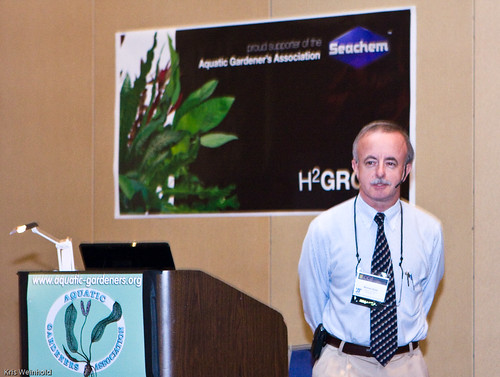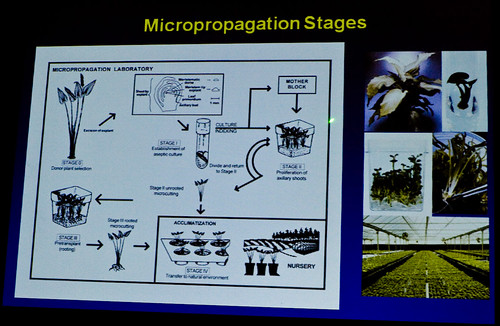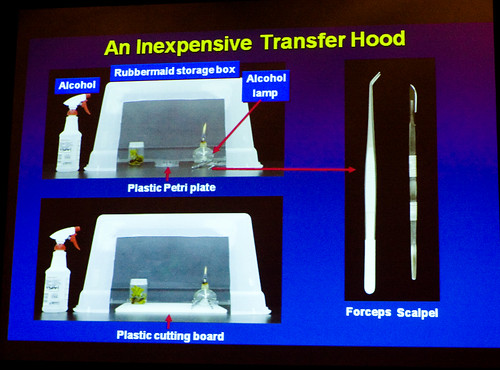AGA 2008: Michael Kane: Tissue Culture for Aquarists
November 17th, 2008The second presentation at the 2008 AGA was Dr. Michael Kane of the University of Florida, who spoke about Tissue Culture for Aquarists. Tissue culturing is the rapid clonal propagation of plants. This is an extremely beneficial way of propagating plants because every plant produced is guaranteed to be identical genetically to the original plant. In addition, the plants can be disease free, produced in high volume, and can be grown in very little space.
Dr. Kane then proceeded to discuss in more detail how to propagate aquatic plants, specifically Cryptocoryne. One of the challenges of aquatic plants is obtaining a sterile source plant from which to work. For this reason, if it’s possible to do so, you ought to first convert your plant to emersed form, growing in a soiless potting mix. When the plant is ready, you need to further sterilize it by rinsing in water, soaking in 50% ethanol, and for 12 minutes in 20% bleach. Once complete, isolate the growing tip of the plant, and put it in your culture medium. This is a gelatinous substance containing nutrients, which will be placed in a sterile container. From here, they need to be grown out, and further split many times to ultimately end up with hundreds of individual plants. This is, of course, a gross simplification of the process.
Dr. Kane also detailed a number of ways that hobbyists could do tissue culturing in their own homes, using easily obtainable materials. In addition, he mentioned the he expects to be teaching a short 2-3 day course sometime next spring specifically on how to propagate aquatic plants. I would love to attend that course!
Throughout the talk, he offered a number of other useful tidbits. For instance, he mentioned that you can spray a Cryptocoryne with gibberellic acid to induce it to flower. He also stated the tissue culturing does not work for every plant, and even for some that do, it is incredibly slow (Anubias). Water lillies, for instance, are quite difficult to culture, as are true aquatic plants, which have no emersed form. This was one of the talks I was most looking forward to at this convention, and Dr. Michael Kane delivered.


